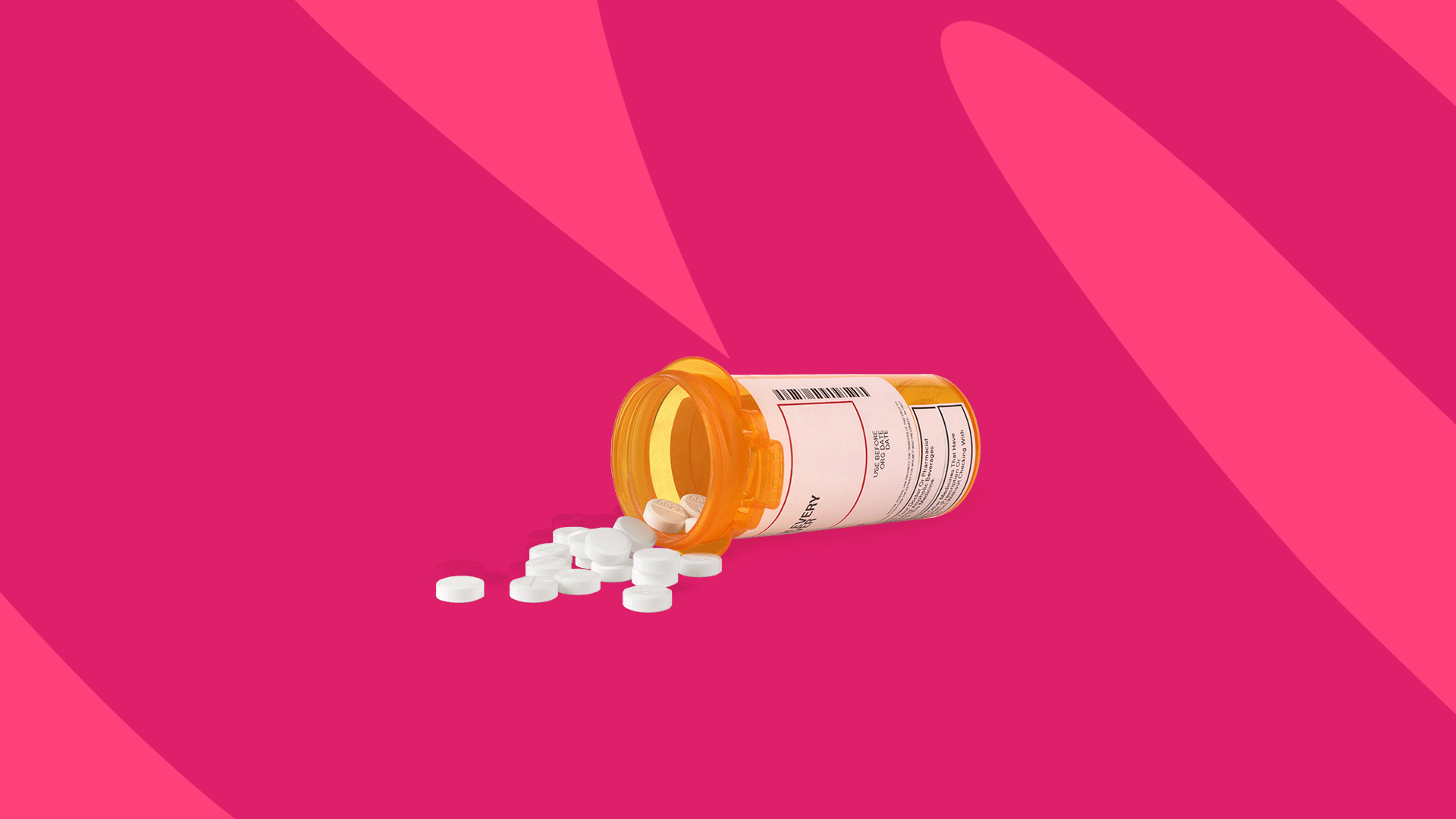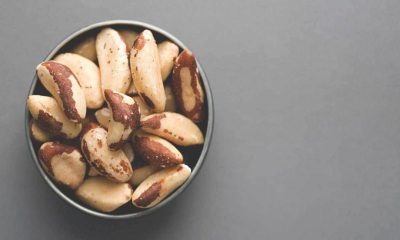Health
Serious side effects of metoprolol

- Discover the serious side effects of metoprolol.
- How does this medication work? What are its effects?
- Metoprolol belongs to the class of medications called beta-blockers. Metoprolol is used to treat high blood pressure and prevent symptoms of certain types of angina ( chest pain). It is also used to reduce the risk of death immediately after a heart attack. It works by reducing the needs of the heart during exercise.
- People who have had a heart attack take metoprolol to avoid having another heart attack. Metoprolol is often used in combination with other drugs that lower high blood pressure, such as diuretics (pills that increase urine output), when just one agent is not enough to control blood pressure.
- This medicine is available under various brand names or in different formulations, or both. A specific brand of this medication may not be available in all forms and may not have been approved for all of the conditions discussed here. Also, some forms of this medicine may not be used for all of the conditions mentioned in this article.
- Your doctor may have suggested this medication for a condition that is not listed in this Medication Information article. If you have not yet discussed this with your doctor, or if you are not sure why you are taking this medicine, consult your doctor. Do not stop taking this medicine without consulting your doctor first.
- Do not give this medicine to anyone, even someone who has the same symptoms as yours. This medicine could harm people for whom it was not prescribed.
- What forms does this medication come in?
- Apo-Metoprolol
- 25 mg
- Each white, oval, scored tablet, engraved “ME” over “25” on one side and “APO” on the other, contains 25 mg of metoprolol tartrate. Nonmedicinal ingredients: colloidal silica dioxide, croscarmellose sodium, lactose monohydrate, magnesium stearate, and microcrystalline cellulose.
- 50 mg
- Each white, round, scored tablet, engraved “APO” over “M50”, contains 50 mg of metoprolol tartrate. Nonmedicinal ingredients: colloidal silica dioxide, croscarmellose sodium, lactose, magnesium stearate, and microcrystalline cellulose.
- 100 mg
- Each white, round, scored tablet, debossed with “APO” over “M100”, contains 100 mg of metoprolol tartrate. Nonmedicinal ingredients: colloidal silica dioxide, croscarmellose sodium, lactose, magnesium stearate, and microcrystalline cellulose.
- Apo-Metoprolol (Type L)
- 50 mg
- Each pink, capsule-shaped, coated tablet, scored on one side and engraved “50” on the other, contains 50 mg of metoprolol. Nonmedicinal ingredients: carnauba wax, colloidal silica dioxide, croscarmellose sodium, D&C aluminum lake red No. 30, sun yellow aluminum lake, hydroxypropyl methylcellulose, lactose, magnesium stearate, microcrystalline cellulose, polyethylene glycol 3350, and sodium dioxide. titanium.
- 100 mg
- Each blue, capsule-shaped, coated tablet, scored on one side and engraved “100” on the other, contains 100 mg of metoprolol. Nonmedicinal ingredients: carnauba wax, colloidal silica dioxide, croscarmellose sodium, hydroxypropylmethylcellulose, indigotin aluminum lake (AD & C blue # 2), lactose, magnesium stearate, microcrystalline cellulose, polydextrose, polyethylene glycol 3350, and titanium dioxide.
- How should this medication be used?
- The usual maintenance dose of metoprolol ranges from 100 mg to 200 mg per day, however, this dose may be increased to 400 mg per day as needed to achieve symptom control. Immediate-release tablets are taken in 2 divided doses while slow-release tablets are taken once a day.
- This medication should be taken soon after a meal, but try to take it at the same time every day.
- Several factors can be taken into account in determining the dose a person needs: their weight, their health, and whether they are taking other medications. If your doctor has recommended a dose other than those listed here, do not change the way you are taking the medicine without consulting your doctor.
- This medicine must be taken exactly as your doctor has told you. If you miss a dose, take the medicine as soon as you notice the missed dose and resume treatment as soon as possible. If it is almost time for your next dose, skip the missed dose and go back to your usual dosing schedule. Do not use a double dose to make up for a missed dose. If you are unsure of what to do after missing a dose, ask your doctor or pharmacist for advice.
- Store this medication at room temperature, protect it from light and moisture, and keep it out of the reach of children.
- Do not dispose of medicines in the wastewater (eg not in the sink or in the toilet bowl) or with the household garbage. Ask your pharmacist how to dispose of unused or expired medicines.
- In which cases is this medication not recommended?
- Do not use this medicine under the following circumstances:
- a condition such as right ventricular failure caused by high blood pressure in the lungs;
- is allergic to metoprolol or any of the ingredients of the medication
- are allergic to other beta-blockers;
- anesthesia caused by an agent having a depressant effect on the myocardium (eg ether);
- a history of heart attack accompanied by:
- a heart rate of fewer than 45 beats per minute,
- severe heart block
- very low blood pressure
- moderate or severe heart failure.
- slow heartbeat caused by problems with the heart rhythm;
- severe heart block;
- cardiogenic shock;
- significant circulatory disorders;
- proven heart failure;
- the presence of asthma or other obstructive airway conditions (only when it comes to metoprolol in intravenous form);
- a disorder referred to as “sinus dysfunction syndrome”;
- have untreated pheochromocytoma (a tumor of the adrenal glands).
- What are the possible side effects of metoprolol
- Many medications can cause side effects. A side effect is an unwanted response to a drug when taken in normal doses. It can be mild or severe, temporary or permanent. The side effects listed below are not experienced by everyone who takes this medication. If you are concerned about side effects, discuss the risks and benefits of this medication with your doctor.
- At least 1% of people taking this medicine reported the following side effects. Many of these side effects can be managed and a few may go away on their own over time.
- Consult your doctor if you experience these side effects and if they are serious or bothersome. Your pharmacist may be able to give you advice on what to do if these side effects appear:
- changes in libido or sexual ability;
- constipation;
- diarrhea;
- pain or discomfort in the abdomen;
- dizziness or light-headedness when changing from sitting or lying down to standin
- fatigue or unusual weakness brought on by activity;
- fatigue;
- headaches;
- nausea;
- hair loss;
- weight gain;
- dreams giving a powerful sensation;
- dry mouth;
- increased sensitivity of the skin to solar radiation;
- increased sweating;
- sleep disturbances;
- vomitings.
- Most of the side effects listed below do not happen very often, but they could cause serious problems if you do not see your doctor or receive medical attention.
- Check with your doctor as soon as possible if any of the following side effects occur:
- slow heartbeat (especially less than 40 beats per minute);
- hearing changes;
- confusion;
- difficulty breathing or wheezing;
- back or joint pain;
- chest pain;
- hallucinations (the perception of phenomena that do not exist);
- tingling in the arms and legs.
- a feeling of coldness in the hands and feet;
- signs of depression (eg, lack of concentration, weight fluctuations, trouble sleeping, indifference to many activities, thoughts of suicide);
- signs of certain heart problems (e.g., increased or irregular heartbeat or pulse, chest pain, difficulty breathing, excessive fatigue, swelling of the feet, ankles, or part lower legs);
- signs of certain kidney problems (eg increased or reduced urine production, itching, nausea, vomiting, rash);
- signs of a bleeding disorder (e.g. unusual nosebleeds, bruising, blood in urine, cough with bloody sputum, bleeding gums, cuts that keep bleeding) ;
- signs of liver problems (eg, nausea, vomiting, diarrhea, loss of appetite, weight loss, yellowing of the skin or whites of the eyes, dark urine, pale stools );
- a flare-up of psoriasis (eg, red spots the size of a pinhead on the skin; red, scaly, or crusty skin);
- a feeling of numbness or tingling in the extremities;
- symptoms of low blood pressure (eg, dizziness, fatigue);
- vision changes (eg blurred vision, dry eye, eye pain).
- Stop taking the drug and seek immediate medical attention if there is a response such as :
- coldness, discoloration, or pain in the fingers or toes;
- symptoms of a serious allergic reaction (such as swelling of the face or swelling of the throat, hives, or difficulty breathing).
- Some people may experience side effects other than those listed. See your doctor if you notice any symptom that worries you while you are using this medicine.
- Are there other precautions or warnings?
- Before using any medication, be sure to tell your doctor about any medical conditions or allergies you may have, the medications you are using, and any other important facts about your health. Women should mention if they are pregnant or breastfeeding. These factors could influence how you should use this medicine.
- Respiratory disorders: In general, people with asthma, and certain other lung problems, should generally avoid taking beta-blockers such as metoprolol, as they can cause breathing difficulties. If you have breathing problems, and your doctor has prescribed metoprolol for you, it is probably in lower doses, and they will monitor you regularly while you are using this medicine. If you have breathing problems, talk to your doctor about how this medicine may affect your condition, how your condition affects the administration and effectiveness of this medicine, and whether medical supervision is needed. specific.
- Severe allergies: If you have allergies severe enough to cause anaphylaxis (a severe allergic reaction in which swelling of the face, lips, and throat makes it very difficult to breathe), talk to your doctor about what to do next. take if you have an allergic reaction. the use of metoprolol may make it more difficult to treat severe allergic reactions with epinephrine.
- Stopping the drug: People with heart disease who suddenly stop taking this drug may experience chest pain, irregular heartbeat, or a heart attack. If you have heart disease, do not stop taking this medication without consulting your doctor first. When this medication is to be stopped, it should be done gradually, under the supervision of your doctor.
- Diabetes: The signs associated with low blood sugar may be more difficult to see while you are taking metoprolol. People with diabetes may have a harder time regulating their blood sugar levels when taking this medicine. If you have diabetes, discuss with your doctor how this medication may affect your condition, how your condition affects the administration and effectiveness of this medicine, and whether medical supervision is needed. specific. You will be kept under medical supervision while taking this medicine and your doctor may need to adjust your doses of diabetes medicine.
- Dizziness or syncope: Metoprolol may cause side effects, including dizziness or fainting, soon after starting treatment. Do not drive a vehicle or do other potentially dangerous tasks until you know how this medicine works for you.
- Hyperthyroidism (high level of thyroid hormones): Metoprolol may mask the symptoms of a person with hyperthyroidism (high level of thyroid hormones).
- If you have hyperthyroidism, discuss with your doctor how this medication may affect your condition, how your condition affects the administration and effectiveness of this medicine, and whether it is appropriate to have it. specific medical surveillance. Stopping the medication suddenly could make this condition worse.
- Liver function: Liver disease or reduced liver function can cause this drug to build up in the body, causing side effects. If you have liver problems, talk to your doctor about how this medicine may affect your condition, how your condition affects the administration and effectiveness of this medicine, and whether medical supervision is needed. specific. Your doctor will monitor your liver function with regular blood tests while you are taking this medicine.
- If you notice symptoms of liver problems such as fatigue, feeling unwell, loss of appetite, nausea, yellowing of the skin or whites of the eyes, dark urine, pale stools, abdominal pain, or swelling and itching of the skin, contact your doctor immediately.
- Kidney function: Taking metoprolol may affect kidney function. Your doctor will take this into account in his monitoring and will adjust your dose as needed. If you have reduced kidney function or kidney disease, talk to your doctor about how this medicine may affect your condition, how your condition affects the administration, and how well this medicine works. , and the relevance of specific medical surveillance. If you notice swelling in your hands, feet, or face, an increase in your blood pressure, unusual muscle cramps, or a dark appearance of your urine, this medicine may be interfering with the proper function of your blood. kidneys.
- If you notice any of these symptoms, contact your doctor as soon as possible.
- Heart disease: Beta-blockers like metoprolol can worsen already present heart failure. It is essential to use metoprolol as prescribed by your doctor to reduce this risk. If you have a history of heart disease, discuss with your doctor how this medication may affect your condition, how your condition affects the administration and effectiveness of this medicine, and whether it is appropriate to use it. specific medical surveillance.
- Pheochromocytoma: This medicine may worsen the symptoms of pheochromocytoma (a tumor of the adrenal gland) if taken alone Talk to your doctor about how this medicine might affect your condition, how your condition affects your condition. administration and efficacy of this medicinal product, and the relevance of specific medical supervision.
- Surgery: If you are about to have surgery, tell all healthcare professionals who treat you that you are using metoprolol.
- Pregnancy: This medication should not be used during pregnancy unless the benefits outweigh the risks. If pregnancy occurs while you are using this medicine, contact your doctor immediately.
- Breast-feeding: This medicine passes into breast milk. If you use metoprolol while you are breastfeeding your baby may feel the effects. Check with your doctor to see if you should continue breastfeeding.
- Children: The safety and effectiveness of this medicine have not been established in children
- Seniors: Normal doses of metoprolol for adults may lower blood pressure more than expected. Lower doses may be necessary for the elderly.
- Can other agents interact with this medication?
- There may be an interaction between metoprolol and any of the following:
- abiraterone acetate;
- acetylcholine;
- anesthetic agents;
- alpha agonists (eg, clonidine, methyldopa);
- alcohol;
- aldesleukin;
- aliskiren;
- alpha1-blockers (eg doxazosin, prazosin, tamsulosin);
- amifostine;
- amiodarone;
- amphetamines (eg, dextroamphetamine, lisdexamfetamine);
- serotonin antagonists (antiemetic drugs; eg dolasetron, granisetron, ondansetron);
- tricyclic antidepressants (eg amitriptyline, clomipramine, desipramine, trimipramine);
- antihistamines (eg, cetirizine, doxylamine, diphenhydramine, hydroxyzine, loratadine, diphenhydramine);
- nonsteroidal anti-inflammatory drugs (NSAIDs) eg. ibuprofen, indomethacin, naproxen);
- antimalarials (e.g. chloroquine, hydroxychloroquine, mefloquine, quinine);
- antipsychotics (eg, chlorpromazine, clozapine, haloperidol, olanzapine, quetiapine, risperidone);
- asunaprevir;
- atomoxetine;
- other beta-blockers (eg, atenolol, pindolol, propranolol);
- azelastine;
- barbiturates (eg, butalbital, pentobarbital, phenobarbital);
- beta-agonists (anti-asthma medicines, eg salbutamol, salmeterol, formoterol);
- calcium channel blockers (eg, verapamil, diltiazem, nifedipine, amlodipine);
- angiotensin II receptor blockers (ARBs) eg. irbesartan, losartan);
- bortezomib;
- brimonidine;
- buprenorphine;
- bupropion;
- celecoxib;
- ceritinib;
- milk thistle;
- cholecalciferol;
- cimetidine;
- cinacalcet;
- clobazam;
- clotrimazole;
- cobicistat;
- cocaine;
- cyproterone;
- darifenacin;
- delavirdine;
- rye ergot derivatives (eg bromocriptine, ergotamine, methylergonovine);
- nitro derivatives (eg nitroglycerin, isosorbide dinitrate, isosorbide mononitrate);
- dextromethorphan;
- digoxin;
- dipyridamole;
- disopyramide;
- disulfiram;
- diuretics (pills to remove water; eg furosemide, hydrochlorothiazide);
- donepezil;
- doxorubicin;
- dronedarone;
- entacapone;
- epinephrine;
- grass pollen allergen extract;
- fentanyl;
- fingolimod;
- flecainide;
- floctafenine;
- galantamine;
- ginger;
- ginseng;
- guanfacine;
- imatinib;
- phosphodiesterase type 5 inhibitors (eg, sildenafil, tadalafil);
- proton pump inhibitors (eg, lansoprazole, omeprazole, rabeprazole);
- Angiotensin-Converting Enzyme Inhibitors (ACEIs) eg. captopril, ramipril);
- selective serotonin reuptake inhibitors (eg fluoxetine, paroxetine, sertraline);
- selective serotonin-norepinephrine reuptake inhibitors or SNRIs (eg, desvenlafaxine, duloxetine, venlafaxine);
- insulin;
- isoniazid;
- ketoconazole;
- lacosamide;
- lanreotide;
- levodopa;
- lidocaine;
- lomustine;
- cholesterol “statin” drugs (eg pravastatin, simvastatin);
- methacholine;
- methadone;
- methimazole;
- methoxsalen;
- methylphenidate;
- metoclopramide;
- midodrine;
- mifepristone;
- mirabegron;
- moclobemide;
- nefazodone;
- nevirapine;
- nilotinib;
- noradrenaline;
- octreotide;
- orphenadrine;
- oxybutynin;
- pasireotide;
- pazopanib;
- peginterferon alfa-2b;
- pentoxifylline;
- sodium phenylbutyrate;
- pilocarpine;
- pimozide;
- praziquantel;
- propafenone;
- quinidine;
- quinine;
- ranitidine;
- regorafenib;
- rifabutin;
- rifampin;
- rituximab;
- rivastigmine;
- ropinirole;
- sulfonylureas (eg gliclazide, glyburide, tolbutamide);
- temsirolimus;
- terbinafine;
- theophyllines (eg aminophylline, oxtriphylline, theophylline);
- ticagrelor;
- ticlopidine;
- tizanidine;
- tofacitinib;
- tolcapone;
- tranylcypromine;
- yohimbine.
- If you are taking any of the above medicines, please tell your doctor or pharmacist. In your case, your doctor may ask you to:
- stop taking any of the medications;
- replace one of the drugs with another;
- change the way you take one or both of the medicines.
- do not change anything at all.
- Interference of one medicine with another does not always mean that you stop taking one of them. Ask your doctor what to do with drug interactions.
- Drugs other than those listed above may interact with this drug. Tell your doctor everything you take, whether it is prescription or over-the-counter drugs and herbal remedies. Do not forget to mention any supplements you take. If you consume caffeine, alcohol, nicotine, or street drugs, you should tell your prescribing doctor since these substances can affect the way many drugs work
Health
Benefits of pomegranate juice

Discover the benefits of pomegranate juice.
Frequent consumption of pomegranate juice can help us prevent multiple ailments and promote better blood circulation.
Drinking natural juices is good for our health. Surely you have read or heard this statement often. Among them, a very beneficial one is pomegranate juice.
Although all fruits are nutritious, each one has its properties. Here we will tell you about the benefits of pomegranate juice.
The tree that provides us with this delicious fruit is the pomegranate. It blooms between April and June and can survive up to 1,100 meters high.
It is native to Asia but today it is also planted near the Mediterranean Sea, South America, Australia, and South Africa.
Traces of the use of the pomegranate by the peoples of desert areas have been found since it was preserved for quite some time.
For example, in Greece, it is said that the first tree was planted by Aphrodite. In Java the fruit is used in pregnancy rituals and in China it is offered to newlyweds to guarantee great offspring.
1. Antioxidants
Pomegranates have been consumed throughout history for their medical benefits. Today, the juice of this fruit is a popular part of healthy diets.
Pomegranate seeds get their bright red color from polyphenols. These chemicals are powerful antioxidants.
Pomegranate juice contains higher levels of antioxidants than most other fruit juices. It also has three times more antioxidants than red wine and green tea. The antioxidants in pomegranate juice can help scavenge free radicals, protect cells from damage and reduce inflammation.
2. Vitamin C
The juice of a single pomegranate has more than 40% of your daily vitamin C requirement. Vitamin C can break down when pasteurized, so choose homemade or fresh pomegranate juice to get the most nutrients.
3. Cancer prevention
Pomegranate juice caused a sensation when researchers found that it could help stop the growth of prostate cancer cells. Despite multiple studies on the effects of juice on prostate cancer, the results are still preliminary.
Although there have been no long-term human studies proving that pomegranate juice prevents cancer or reduces risk, adding it to your diet doesn’t hurt. There have been encouraging results in the studies so far, and larger studies are now underway.
4. Protection against Alzheimer’s disease
The antioxidants in the juice and their high concentration are believed to stop the progression of Alzheimer’s disease and protect memory.
5. Digestion
Pomegranate juice can reduce inflammation in the intestines and improve digestion. It may be of benefit to people with Crohn’s disease, ulcerative colitis, and other inflammatory bowel diseases.
Although there are conflicting beliefs and research about whether pomegranate juice helps or worsens diarrhea, most doctors recommend avoiding it until you feel better and your symptoms have resolved.
6. Anti-inflammatory
Pomegranate juice is a powerful anti-inflammatory due to its high concentration of antioxidants. It can help reduce inflammation throughout the body and prevent oxidative stress and damage.
7. Arthritis
The flavonols in pomegranate juice may help block inflammation that contributes to osteoarthritis and cartilage damage. Possible effects on osteoporosis, rheumatoid arthritis, and other types of arthritis and joint inflammation are currently being studied.
8. Heart disease
Pomegranate juice might be the most heart-healthy juice. It protects the heart and arteries.
Small studies have shown that the juice improves blood flow and prevents arteries from becoming stiff and thin. It can also reduce the growth of plaque and cholesterol buildup in the arteries. However, pomegranate may react negatively with blood pressure and cholesterol medications such as statins.
Be sure to talk to your doctor before indulging in juice or taking a pomegranate extract supplement.
9. Blood pressure
Drinking pomegranate juice daily can also help lower systolic blood pressure. A comprehensive review of randomized controlled trials indicated that including pomegranate juice every day would be beneficial for heart health.
10. Antiviral
Between vitamin C and other nutrients that boost your immune system like vitamin E, pomegranate juice can ward off illness and fight infections. Pomegranates have also been shown to be antibacterial and antiviral in laboratory tests. Its effects on common infections and viruses are being studied.
11. Rich in vitamins
In addition to vitamin C and vitamin E, pomegranate juice is a good source of folate, potassium, and vitamin K.
Whether you decide to add pomegranate to your daily diet or just drink it occasionally, check the label to make sure it’s 100% pure pomegranate juice with no added sugar. Or, prepare it fresh.
12. Memory
According to a recent study, drinking 8 ounces of pomegranate juice daily can improve learning and memory.
13. Sexual performance and fertility
The concentration of antioxidants and the ability to affect oxidative stress make pomegranate juice a potential fertility aid. Oxidative stress has been shown to cause sperm dysfunction and decrease fertility in women.
The juice has also been shown to help reduce oxidative stress in the placenta. However, researchers do not yet know the exact benefits it may cause. Drinking pomegranate juice can also increase testosterone levels in men and women, one of the main hormones behind the sex drive.
14. Endurance and sports performance
Set aside the cherry pie and beetroot juice. Pomegranate juice may be the new sports performance booster. The juice can help reduce pain and improve stamina recovery. It also decreases oxidative damage caused by exercise.
15. Diabetes
Pomegranate was traditionally used as a remedy for diabetes in the Middle East and India. Although much is still unknown about the effects of pomegranate on diabetes, it may help lower insulin resistance and lower blood sugar.
Conclusion
Green juice isn’t the only healthy option out there. Adding pomegranate juice to your diet can reduce your risk of chronic disease and inflammation. It’s also a wonderful way to get the nutrients from the fruit and boost antioxidants.
There are several brands of pomegranate juice for purchase online. It is a good idea to compare the different products to choose the one with the greatest benefit.
It’s best to check with your doctor before drinking pomegranate juice every day to make sure it won’t interfere with any of your medications. Also, diabetics should check their blood sugar daily if they choose pomegranate juice over the whole pomegranate to ensure blood sugar remains at its optimal level.
Health
20 benefits of Mucuna Pruriens and side effects

Table of Contents
Discover the 20 health benefits of Mucuna Pruriens and side effects.
Mucuna Pruriens , known as velvet bean, is a plant of the legume family.
The original habitat of Mucuna Pruriens extends throughout the tropics on all continents, beginning with Africa, the Caribbean islands, northern Australia, India, Southeast Asia (including Indonesia), and the Pacific islands.
Mucuna Pruriens is a seasonal legume that grows to spread.
This plant can be used for human and animal food (forage and seeds) and environmental services.
The young leaves, pods, and seeds can give some benefits, especially for food ingredients like Tempe which originally comes from Indonesia and is made by fermenting boiled seed paste.
Nutrition facts of Mucuna Pruriens
The nutrients contained in Mucuna pruriens are:
• Energy 32 Kcal
• Protein 24 g
• Fat 3 g
• Carbohydrates 55 g
• Calcium 130 mg
• Phosphorous 200 mg
• Zinc 2 mg
• Vitamin A 70 IU
• Vitamin B1 0.3 g
• Vitamin C 0 mg
20 health benefits of Mucuna pruriens
Of the nutrients above, here are the health benefits of mucuna pruriens:
1.- Benefits of Mucuna Pruriens for cholesterol
According to various scientific studies carried out, the results show that mucuna pruriens has saponin content.
This saponin serves to lower cholesterol levels in the body.
This content binds to bile acids and causes bound cholesterol. So this plant is often called an anti-cholesterol plant.
2.- It works as an antioxidant body
Too much oxidation with the skin can cause free radicals.
Therefore, it is necessary to get as many antioxidants as possible that are useful to prevent the appearance of free radicals.
Mucuna pruriens is also one of the plants that contain flavonoids that produce antioxidants or antioxidants.
3.- Prevents skin aging
The flavonoid content in Mucuna Pruriens is also helpful in preventing premature aging.
Self-aging can occur because the skin is often exposed to air pollution and direct sunlight.
The flavonoid will lift the dull skin and regenerate the dead skin from these problems.
In addition, the flavonoid also protects and maintains the health of the skin.
4.- Avoid allergies
According to the study, after consuming or using Mucuna Pruriens, the body will respond to things that can cause the allergy to be rejected.
So that the body becomes comfortable with the disturbance that surrounds it.
The smell and taste of this plant are also not too strong which can often cause allergies.
5.-Benefits of Mucuna Pruriens for diarrhea
Eating foods and drinks that contain flavonoids like mucuna pruriens is also beneficial for the digestive system.
The benefit is preventing the body from lacking fluids that can cause diarrhea.
This disease is often infected, especially in children.
6.- Increased libido (aphrodisiac)
Inside mucuna pruriens, there is a substance called levodopa and it gives some good effects as an aphrodisiac.
It can increase libido, which can be interpreted as an increase in a person’s sexual desire.
This can happen to both men and women.
According to some studies, especially in Brazil, people use the leaves of this plant to increase male sexual desire and it shows some great results.
7.- Protein producer and energy source
The mucuna pruriens that we already know from above can be used as one of the raw materials of Tempe.
It is also beneficial as a source of protein substitutes apart from the more expensive meats and contains other substances.
Mucuna pruriens serve as an essential nutrient in the body.
This plant contains epinephrine (adrenaline) and norepinephrine that give some effects that can increase energy and focus. It is the same result as a dose of caffeine.
Therefore, consuming it will increase the body’s energy inactivity.
Also, the body will feel full for a long time, and it will make the body feel more energetic.
8.- Heals minor wounds
The sap from the stem of the mucuna pruriens plant is beneficial in treating minor external ulcers.
It is because the content in the stem can heal these minor wounds, such as torn, stabbed, cut, scratched, or lightly burned wounds.
9.- Relieves Parkinson’s disease
Parkinson’s disease is a gradual degeneration of nerve cells in the center of the brain that regulate body movement.
Parkinson’s itself can also lead to other serious illnesses, especially psychiatric problems.
L-dopa contained in the seed of mucuna pruriens is a precursor of dopamine and improves the level of dopamine in the brain.
However, L-dopa is not the only substance responsible for use in the prevention of Parkinson’s disease.
In addition, there are other substances in the seeds that can act as neuroprotectors and reduce the symptoms of Parkinson’s disease.
10.- Helps reduce stress
Feelings of stress can be fatal to the body. This is because if a person is depressed, they will tend to perform actions that are beyond the control of their mind.
Also, it can affect others because that person will try to blame others, get angry easily, and most dangerously, that person can also hurt others to get rid of stress.
Fortunately, the consumption of mucuna pruriens can refresh the mind to be calmer due to the fragrant smell and taste.
11.- Benefits of Mucuna Pruriens for diabetes
Mucuna pruriens contains proteins and some vitamins that are useful in the fight against hypertension.
The study was carried out in mice and concluded that blood sugar levels were lowered by 21.89% in four weeks.
The result of this can also be used by humans. We already know that proteins can maintain blood sugar levels and that vitamins contain antioxidants and pure sugar that do not increase blood sugar levels.
12.- Increases the immune system
Within the mucuna pruriens, there are phosphorus and calcium substances that increase resistance and white blood cells.
According to 1996 research at the University of Arkansas, phosphorus deficiency is often associated with vitamin D and calcium deficiency.
These nutritional deficiencies can enhance the autoimmune disorder.
13.- Helps maintain the nervous system
The content of vitamin B1, phosphorus, and iron in Mucuna pruriens is very important to keep the nervous system working properly.
Phosphorus is one of the important minerals in the body. Phosphorus directly maintains normal neural activity.
While iron plays a role in red blood cell regulation, it remains awake, so the nerve can work optimally.
14.- It can substitute Viagra for the reproductive system
Popular research claims that couples who have healthy and active sex lives are relatively happier and even live longer.
But this can be problematic if the man has erectile dysfunction.
Viagra is the most popular pill for increasing sexual desire/libido in men and it also helps with erectile dysfunction.
People of all ages use these blue pills which hurt health.
Therefore, the consumption of mucuna pruriens becomes a more natural substitute for viagra.
In addition, it is good for normal fertility, healthy sperm and eggs, proper functioning of the reproductive organs, and proper genital secretions.
Here are more health benefits of Mucuna Pruriens.
15.- Good for diet and losing weight
16.- Protect the heart
17.- Circulate the blood flow
18.- Fight against cancer
19.- Good for pregnant women
20.- Make the digestion system work smoothly
Side effects of mucuna pruriens
Contains hydrocyanic acid
Mucuna pruriens contains acid cyanide poison (HCN), especially in the seeds.
This is what reduces the interest in consuming this plant.
One way to eliminate it is by soaking the beans in the water for 1 day, with every 6 hours to replace the water.
This experiment has been done many times and the result is very good but it is too complicated for people who always want an instant path.
It can cause vomiting, headaches, and poor sleep
We should not consume too much mucuna pruriens because it can cause some problems such as vomiting, headaches, and insomnia.
These are all the health benefits of mucuna pruriens.
However, there are some side effects if we eat or use too much. Stay healthy and good luck.
Health
3 Benefits Of Lemon On The Face That Will Beautify You

Discover the 3 Benefits Of Lemon On The Face That Will Beautify You.
The benefits of lemon on the face are many since it is a perfect ally in the cure of conditions such as acne, blemishes; Lemon on the face gives our skin a special shine, in addition to being a very easy and inexpensive facial treatment, which we can access without any problems.
Lemon is a fruit that is rich in vitamins C, an antioxidant that helps prevent the appearance of threatening expression lines, and it is about the great benefits of lemon on the face and that way you can have the face of a model magazine, so we invite you to continue reading this interesting post.
3 Benefits of lemon on the face that will make you look like a magazine model.
As we mentioned earlier and in other articles, which we invite you to read, is that lemon is considered a great source of vitamin C, this vitamin is a powerful antioxidant that can help you reduce the appearance of fine lines, which are without a doubt our sworn enemies.
The vitamin C found in lemon is capable of stimulating the production of collagen, another of the benefits of lemon on the face is that it helps to heal the tissues.
For this reason, the skin repairs itself and protects itself from free radicals, which are not only the cause of premature aging but also the development of degenerative diseases.
One of the properties of vitamin C that is present in lemon inhibits the production of melanin, which is why the skin can be noticed with a more uniform tone.
The citric acid found in lemon acts as a gentle exfoliator to remove dead cells and give your skin a healthier appearance.
Lemon juice has a slightly sour taste, so it can cause temporary skin irritation; so people who have sensitive skin should dilute it in a little water, if you notice that it burns a lot, the idea is to rinse it immediately.
1.- Skin whitening.
If you want to even out skin tone, lemon juice on the face can be applied externally at least once a day, for best results fresh lemon juice should be used if they are organic much better.
You can dilute lemon juice in water or green tea, with the latter enhancing its antioxidant power in unimaginable ways; As the skin gets used to the power of the lemon, you can increase the concentration of the juice.
You will notice how the spots on your skin gradually diminish, with the regular use of this remedy you may notice changes in a month to six months, depending on how stained your face is.
2.- Eliminate excess fat.
An oily face will never look quite right, the places where it accumulates the most are the forehead, chin, and around the nose.
To hide those greasy areas you can wet a cotton ball with the juice of half a lemon and gently clean the affected areas, it is important that you avoid the use of lemon in the area near the eyes, on wounds, or skin rashes.
3.- The open pores.
If you want to reduce the size of the pores on your face, one of the benefits of lemon on the face is an easy and very inexpensive remedy, it can be applied in the same way as it is used to remove fat from the face.
Important note.
It is important to clarify that you should avoid exposure to the sun when you have placed lemon on your face; Since this makes the skin more vulnerable to the sun’s rays, which has the consequence that the skin becomes stained.
For this reason, it is recommended that any of the lemon-based remedies you use for your skin be done at night, and you should wash your face the next morning very well before going out.
Other uses of lemon on the face
• The lemon peels are an excellent exfoliant, with these you can eliminate blackheads, in the same way, we can use the lemon along with the sugar.
• If you are looking for a nourishing mask you can do it with a tablespoon of lemon juice, along with one of honey and a few drops of almond oil, this is an excellent natural and very inexpensive anti-wrinkle cream.
• A mask for oily skin is one based on a beaten egg and a tablespoon of lemon juice, if your skin is dry you can do it with honey and olive oil, you will achieve a dream complexion.
• To lighten your skin you can take advantage of a tablespoon of lemon juice, cucumber, tomato, and sandalwood paste, use a tablespoon of each product and mix them very well; you put this mixture on your face for 15 minutes and then wash your face well.
• As always keep in mind that when applying lemon-based treatments, you should not expose yourself to the sun, so do them at night. It is time to enjoy the benefits of lemon on your face and have a model face.
Knowing the benefits of nature and technology can help us improve our health and the way we see life. If you want to know more about our topics, we invite you to continue reading our interesting posts and to follow us on our social networks
-

 Benefits5 months ago
Benefits5 months agoThe Benefits of Joining Gym Lumolog – Improve Your Fitness & Health
-

 Food1 year ago
Food1 year ago10 + Benefits of carrot juice and side effects
-

 Health1 year ago
Health1 year ago50 Super Healthy (And Very Often Cheap) Foods
-

 Health1 year ago
Health1 year ago5 Shocking health benefits of kinkeliba and side effects
-

 Health1 year ago
Health1 year ago15 health benefits of soursop leaves tea and side effects
-

 Food1 year ago
Food1 year ago8 shocking benefits of leek juice and side effects
-

 Health1 year ago
Health1 year ago15 Benefits of lipton tea and side effects
-

 Health1 year ago
Health1 year agoBenefits of guava leaves Sensually












